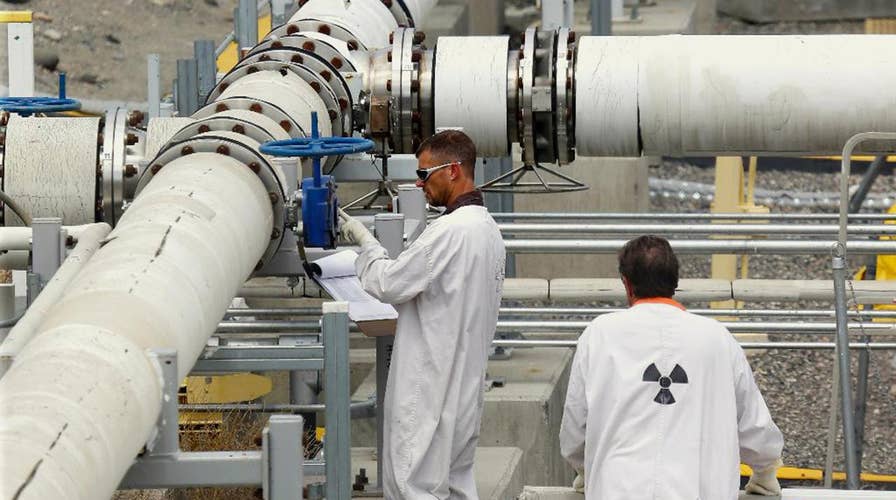SEATTLE – Lonnie Rouse knew the job he was signing up for at the Hanford Nuclear Reservation in Washington State was dangerous. But the good pay, he thought, made it worth the risk.
He doesn’t think that way anymore.
“Most of the people I worked with out there, when I first started, they’re already dead,” said Rouse.
After working 18 years in the plutonium finishing plant at Hanford, the most radioactive waste site in the western hemisphere, Rouse had to quit due to severe health problems that include toxic encephalopathy, dementia and nerve damage. Certain that the job caused his illnesses, Rouse filed for workers' compensation.
For 10 years his claim was denied. But last year the Washington State Legislature changed the rules passing a law that only affects Hanford workers. It creates a presumption that exposure to chemicals at work is to blame for a long list of illnesses, including several cancers. The new law also puts the burden on the Department of Energy to prove the workers’ illnesses were not caused by working at Hanford.
But the Justice Department has filed a lawsuit to get the new law thrown out, arguing it discriminates against the federal government and its contractors. The suit also claims the new law violates the U.S. Constitution’s Supremacy Clause by regulating the federal government.
SOME WASHINGTON STATE RESIDENTS WITH MARIJUANA CONVICTIONS CAN RECEIVE CLEMENCY UNDER NEW PLAN
Larry Haler, R-Richland, who had a long career at Hanford before getting elected to the Washington State House, co-sponsored the Hanford workers' compensation law. He defended the law as necessary to protect these workers.
“They used every chemical in the world,” Haler said, “just tried every chemical in the world to try and get more than 8 ounces of plutonium out of every ton of fuel.”
The plutonium processed at Hanford was used in making the bomb dropped on Nagasaki ending World War 2. During the long Cold War with the Soviet Union, Hanford plutonium went into 60,000 nuclear warheads. Created out of the Manhattan Project, Hanford was finally shut down in 1987 just before the fall of the Berlin Wall. Since then, the Department of Energy has been attempting to clean up the Superfund site. It is a massive undertaking. Hanford contains two-thirds of all the high-level radioactive waste in the United States, including 53 million gallons of liquid waste and 25 million cubic feet of solid waste. There are 200 square miles of contaminated groundwater.
The federal government wants to continue the cleanup effort without the new state workers compensation law. Some lobbyists agree.
“It is only fair when those workers and those employers are held to the same rules of the game that have been in the state for over 100 years,” said Kris Tefft of the Washington Self-Insurers Association.
Democratic Gov. Jay Inslee said the state and the sick workers at Hanford will prevail.
THREE HIDDEN BODIES FOUND ON WASHINGTON STATE PROPERTY, INCLUDING WOMAN IN SHED
“These workers have carried the burden of fighting communism and relieving us from the security threats,” said Inslee. “Now it’s just fair that the federal government carry the burden of proving their problems are not the result of some of their exposure.”
Since the new law took effect last June, 83 claims have been filed by Hanford workers. 28 have been allowed, 6 were denied and 49 are still pending. Lonnie Rouse’s claim has been approved and he’s waiting for the lifetime workers compensation payments to begin.
It’s been tough making it financially. He was earning over $110,000 a year working at Hanford. He did receive $250,000 in compensation from the Energy Employees Occupational Illness Compensation program. The last payment was in 2015. He’s angry the Justice Department filed the discrimination lawsuit against Washington State’s law.
CLICK HERE TO GET THE FOX NEWS APP
“If they say they’re being treated differently, you’re bloody well right, they need to be, because this is the stuff that kills people,” said Rouse.
The Justice Department is concerned about Washington’s law setting a precedent that could spread and have taxpayers on the hook for claims that may not be legitimate.













































